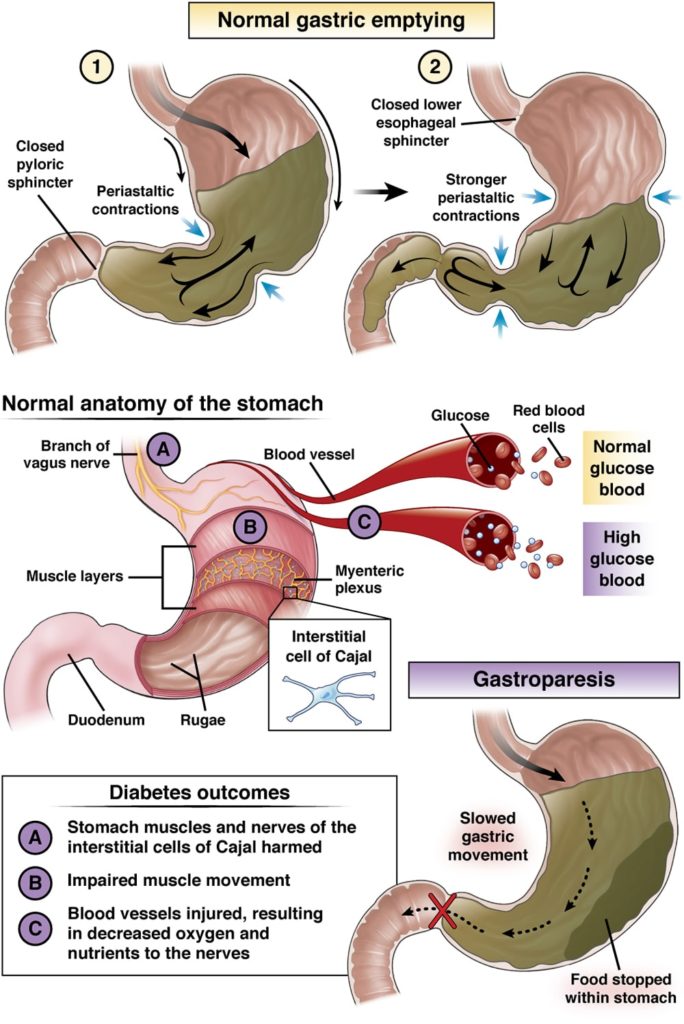What is diabetic gastroparesis?
In diabetic gastroparesis, hyperglycemia (high blood glucose, a type of sugar that your body uses for fuel) can harm your stomach muscles, and nerves of the interstitial cells of Cajal, which help your stomach muscles move. Diabetes can also injure your blood vessels. As a result, your nerves do not get the oxygen and nutrients they need.
Delayed gastric emptying can also affect blood glucose levels and control of diabetes. How fast or slow the stomach empties can change how your body absorbs the carbohydrates and fats (the main nutrients that provide the body with energy) that are eaten.

Diabetic gastroparesis is a chronic condition.
There is no cure, but the condition can be managed. With medicines, changes to your diet, and other forms of treatment, you can learn to take charge and control your condition, so you can do more things that matter to you.
Button TextTreatment for diabetic gastroparesis
Controlling your diabetes is one of the most important things you can do to improve your stomach function and symptoms. When your diabetes is under control, your risk for other problems throughout your whole body lessens, too.
Tips to make the most of your diabetes management plan
1. Understand the medicines you are taking and take them exactly as directed.
2. Know what your target blood glucose level is and what to do if your numbers are out of range. Check your blood glucose levels as often as your health care provider recommends and keep a record.
3. Watch for signs and symptoms of high blood glucose.
4. Follow your meal plan and be aware of foods that can cause your blood glucose to go up.
5. Be as physically active as you can.
6. Have a sick-day plan and follow it.
Understanding diabetic gastroparesis
Read AGA’s full guide for diabetic gastroparesis patients
Read moreWhat are the complications of diabetic gastroparesis?
Sometimes, even with treatment, problems can happen that can upset how well you are managing your condition.
In addition to those that might happen with diabetes, diabetic gastroparesis can cause:
- Severe dehydration or loss of water and electrolytes (minerals found in the body) from vomiting that does not stop.
- Esophagitis, pain and irritation in the esophagus (the tube that links the mouth and the stomach).
- Bezoar (a small mass of food, fiber, or other substances in the stomach), which can cause nausea, vomiting, or a blockage, or stop the body from using some medicines right away.
- Malnutrition, which happens when the body does not get the vitamins, minerals, or nutrients it needs. This can lead to weight loss and raise the risk for infection.
- Worsening quality of life from not being able to do what you want to do because of your symptoms.



